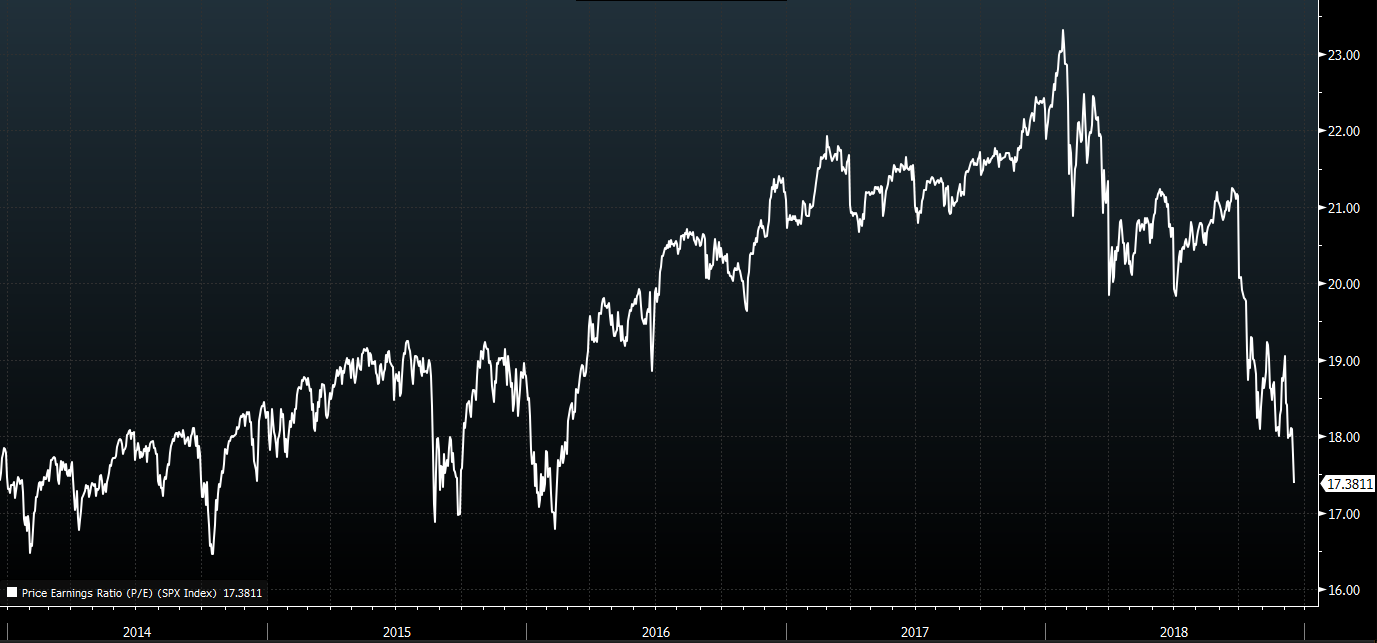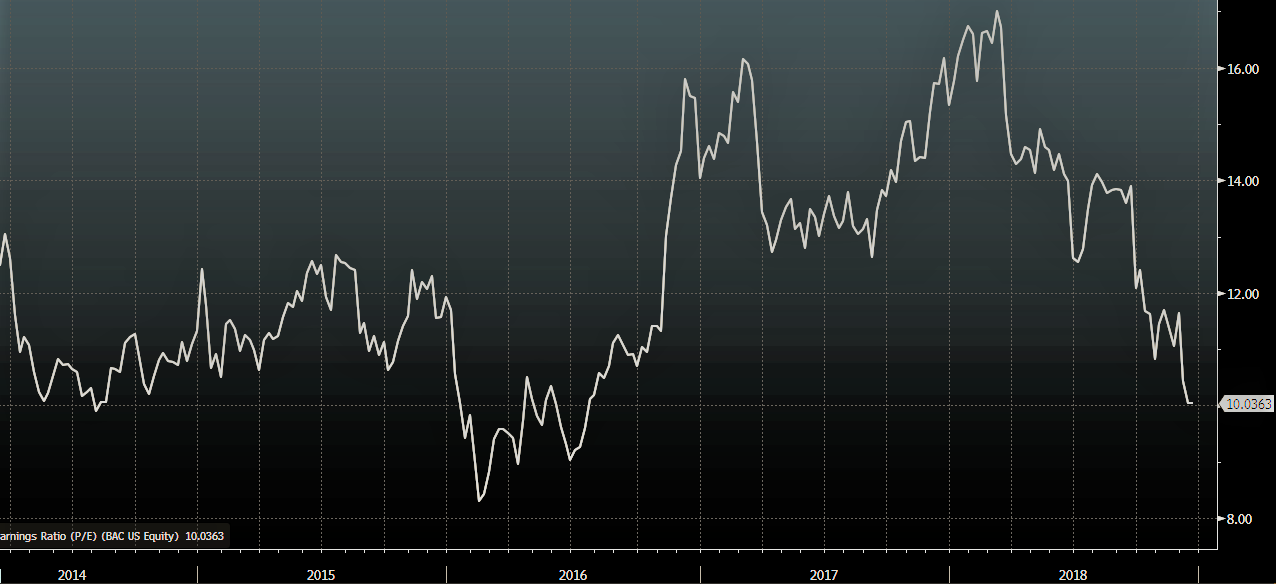The last two weeks have been at odds with our expectations – the market has gone into capitulation mode judging by price action and record outflows. The ‘late cycle’ fears have now rolled through to all sectors; the S&P 500 is off 13.1% since its highs in mid-September (as at time of writing), scaring many traders and index fund investors that haven’t seen this kind of market in the past 10 years.
We started saying two years ago that with higher interest rates, both official and market, that equity valuations would de-rate and thus earnings growth would be needed to offset the squeezing of multiples. In other words, in the PE equation, when ‘price’, or multiples falls in the midst of the liquidity crunch, ‘earnings’ would need to rise to offset it.
Close to its recent lows: Price/ Earnings ratio – S&P500: 2014 - 2018

Source: Bloomberg
Although US economic activity continues to run at a strong rate, P/E ratios in the US have retreated from just above 23 times to 17 times earnings. Indeed, some sectors have discounted so extremely that valuations are at record lows.
Bank of America P/E – the baby

Source: Bloomberg
Bank of America is a prime example of the baby going out with the bathwater. Its de-rating has more than offset its future expected earnings growth. Its earnings are expected to be +30% this year but its stock is down 20%. That’s a 50% total de-rating (check the chart). The reality is that valuations are at extreme levels for a lot of the market.
Is the market action a function of lower liquidity in the market or that the economy is sunk? Even some very learned people are flipping a coin. The trick is, as Rudyard Kipling would say, is to keep your head when all others are losing theirs. Whatever your framework, you want to be more conservative.
Generally, 80% of the stocks in the market have now had their bear market and 20% haven’t. If you’re thinking about the next three to five years, you want to be in the 80% that's had their bear market.
This article reflects opinions as at the time of writing and may change. PM Capital may now or in the future deal in any security mentioned. It is not investment advice.



